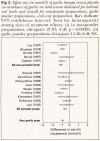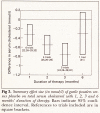Abstract
Garlic supplements may have an important role to play in the treatment of hypercholesterolaemia. To determine the effect of garlic on serum lipids and lipoproteins relative to placebo and other lipid lowering agents, a systematic review, including meta-analysis, was undertaken of published and unpublished randomised controlled trials of garlic preparations of at least four weeks' duration. Studies were identified by a search of MEDLINE and the ALTERNATIVE MEDICINE electronic databases, from references listed in primary and review articles, and through direct contact with garlic manufacturers. Sixteen trials, with data from 952 subjects, were included in the analyses. Many of the trials had methodological shortcomings. The pooled mean difference in the absolute change (from baseline to final measurement in mmol/l) of total serum cholesterol, triglycerides, and high-density lipoprotein (HDL)-cholesterol was compared between subjects treated with garlic therapy against those treated with placebo or other agents. The mean difference in reduction of total cholesterol between garlic-treated subjects and those receiving placebo (or avoiding garlic in their diet) was –0.77 mmol/l (95% CI: –0.65, –0.89 mmol/l). These changes represent a 12% reduction with garlic therapy beyond the final levels achieved with placebo alone. The reduction was evident after one month of therapy and persisted for at least six months. In the dried garlic powders, in which the allicin content is standardised, there was no significant difference in the size of the reduction across the dose range of 600–900 mg daily. Dried garlic powder preparations also significantly lowered serum triglyceride by 0.31 mmol/l compared to placebo (95% CI: –0.14, –0.49). HDL-cholesterol was non-significantly lowered by 0.04 mmol/l (95% CI: –0.11, 0.03 mmol/l). Side-effects from garlic therapy, other than odour, were rare. In conclusion, use of garlic therapy, either as dried garlic preparations (in doses as low as 600 mg per day) or as fresh, high allicin yielding garlic (10–20 g per day) appears significantly to reduce total serum cholesterol over a 1–3 months period. However, more rigorously designed and analysed trials are needed.
Full text
PDF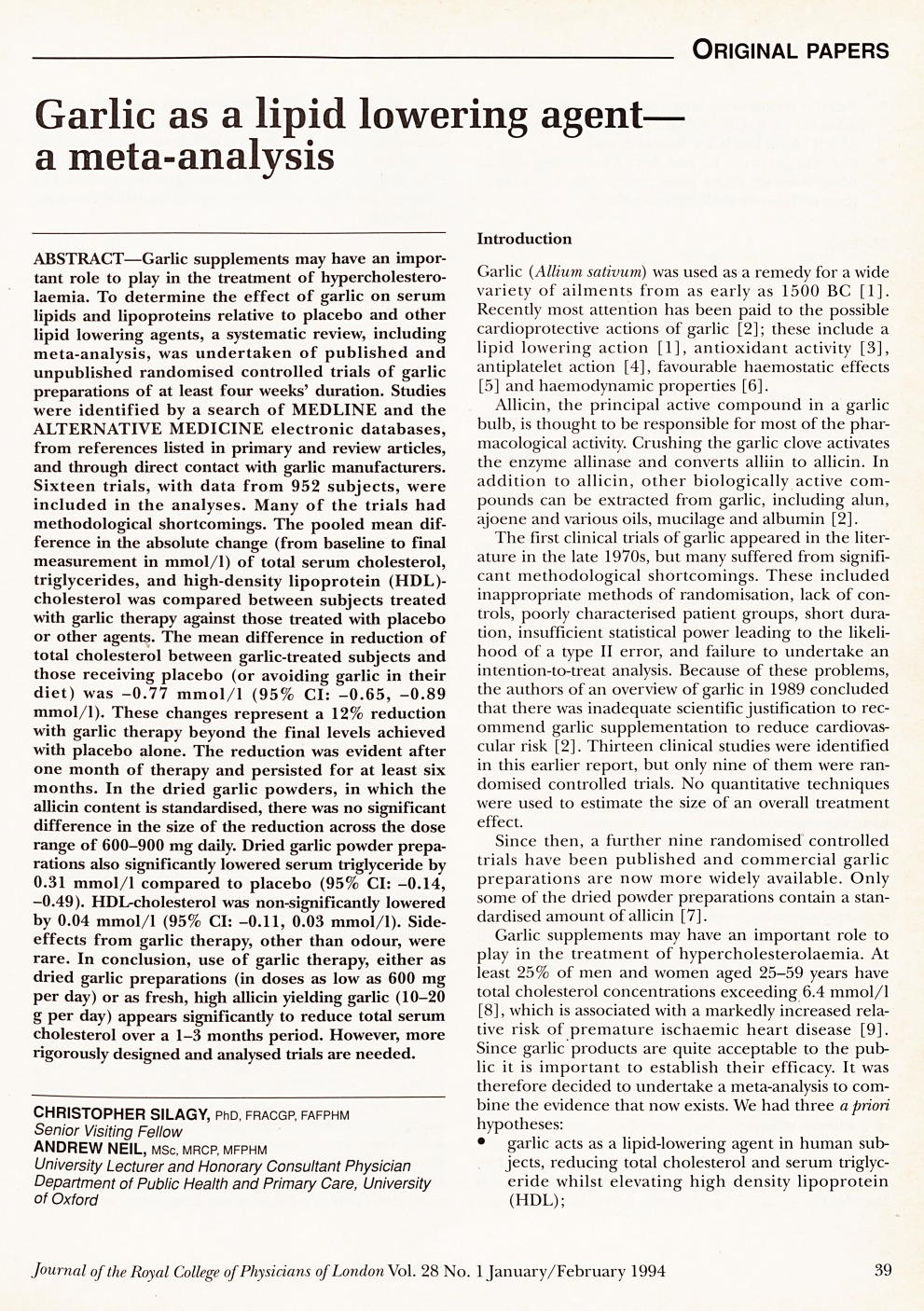
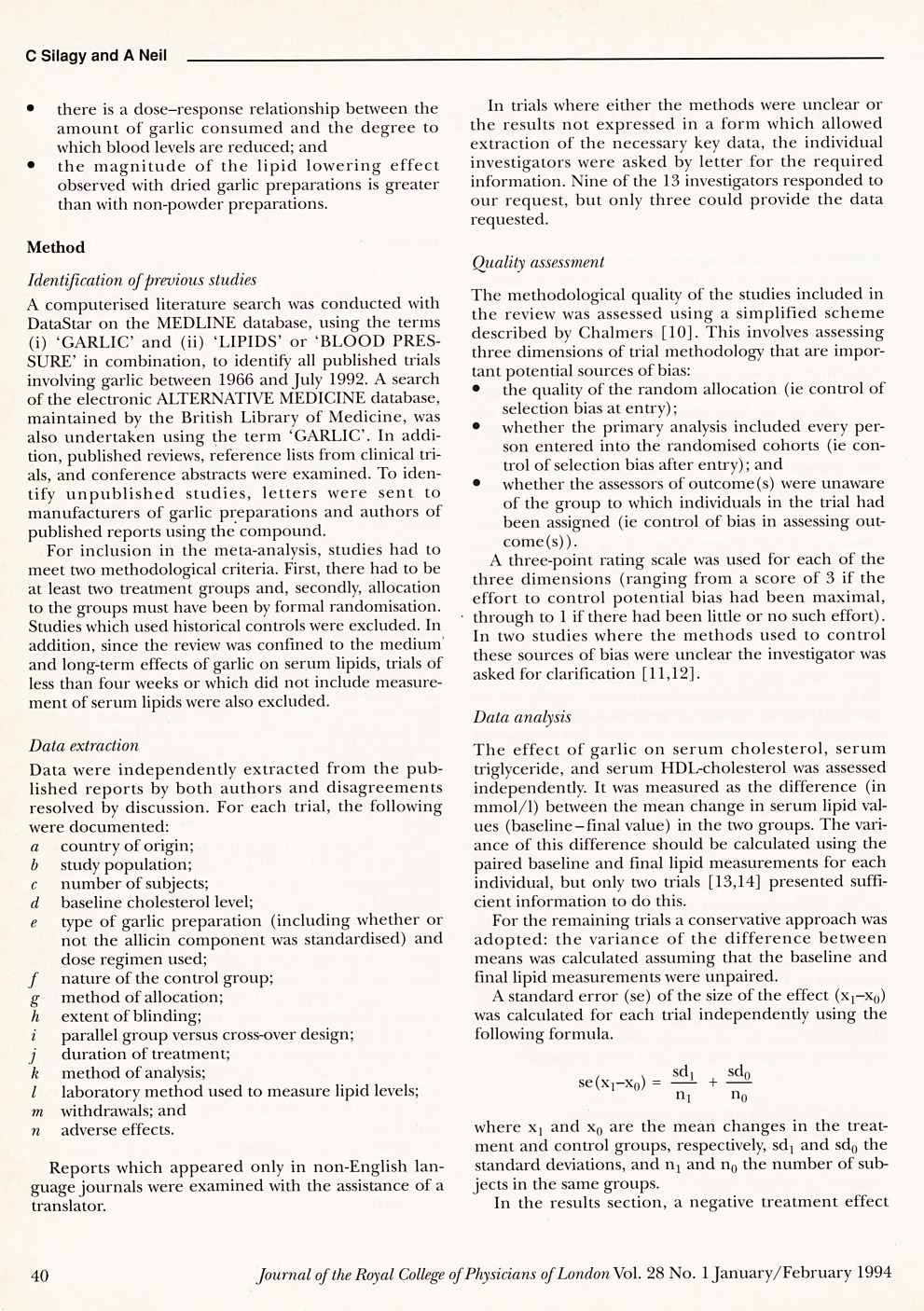
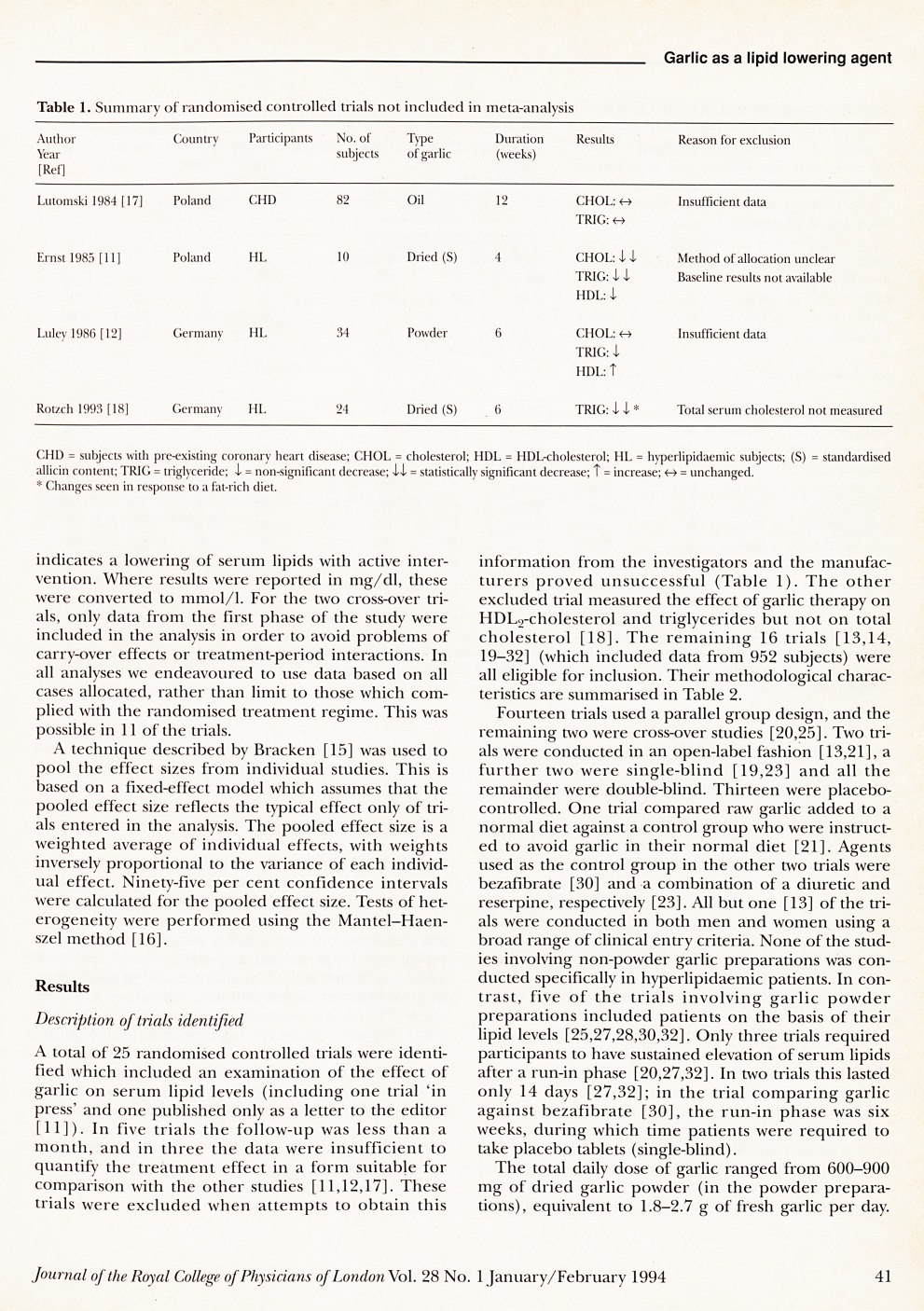
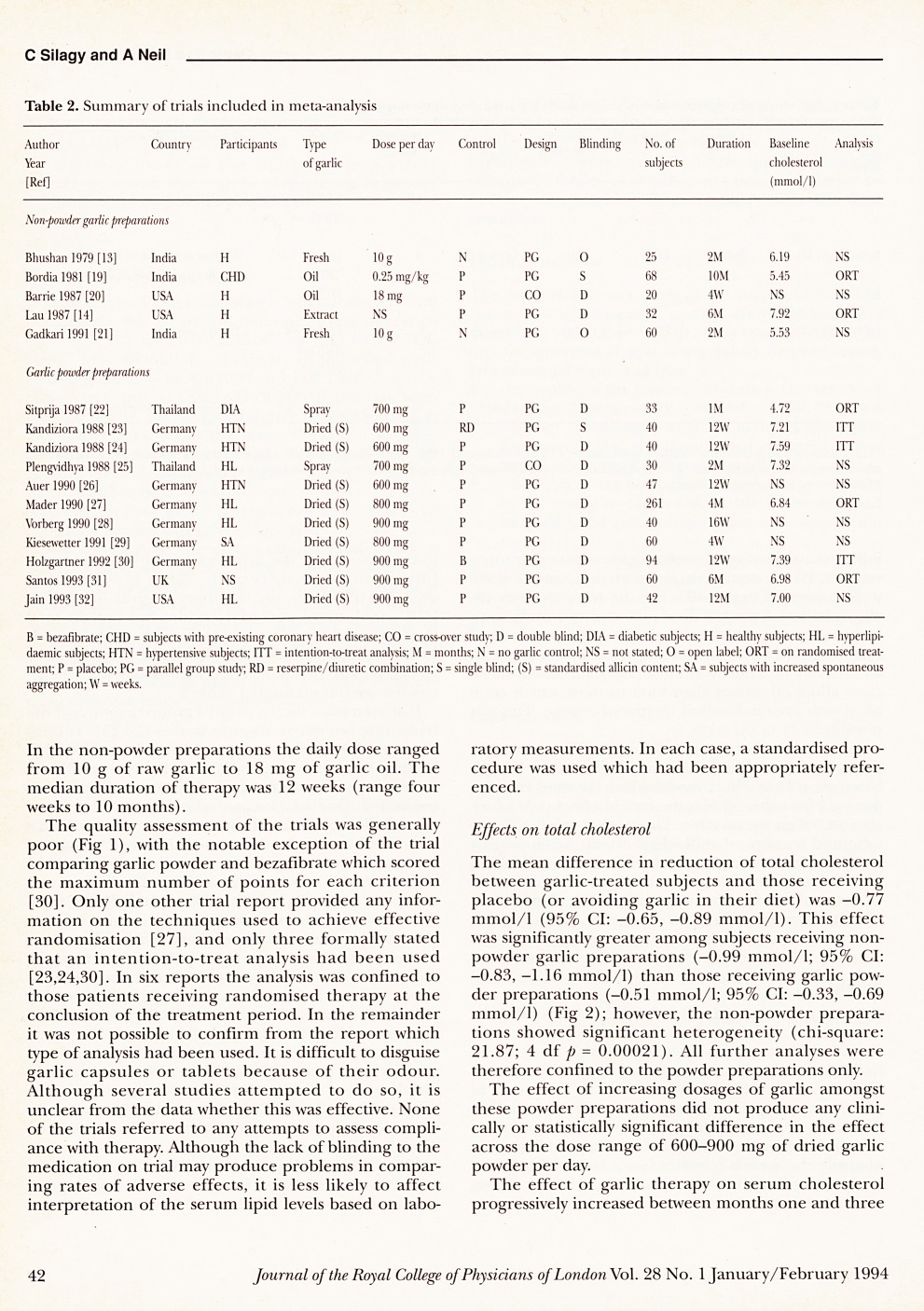
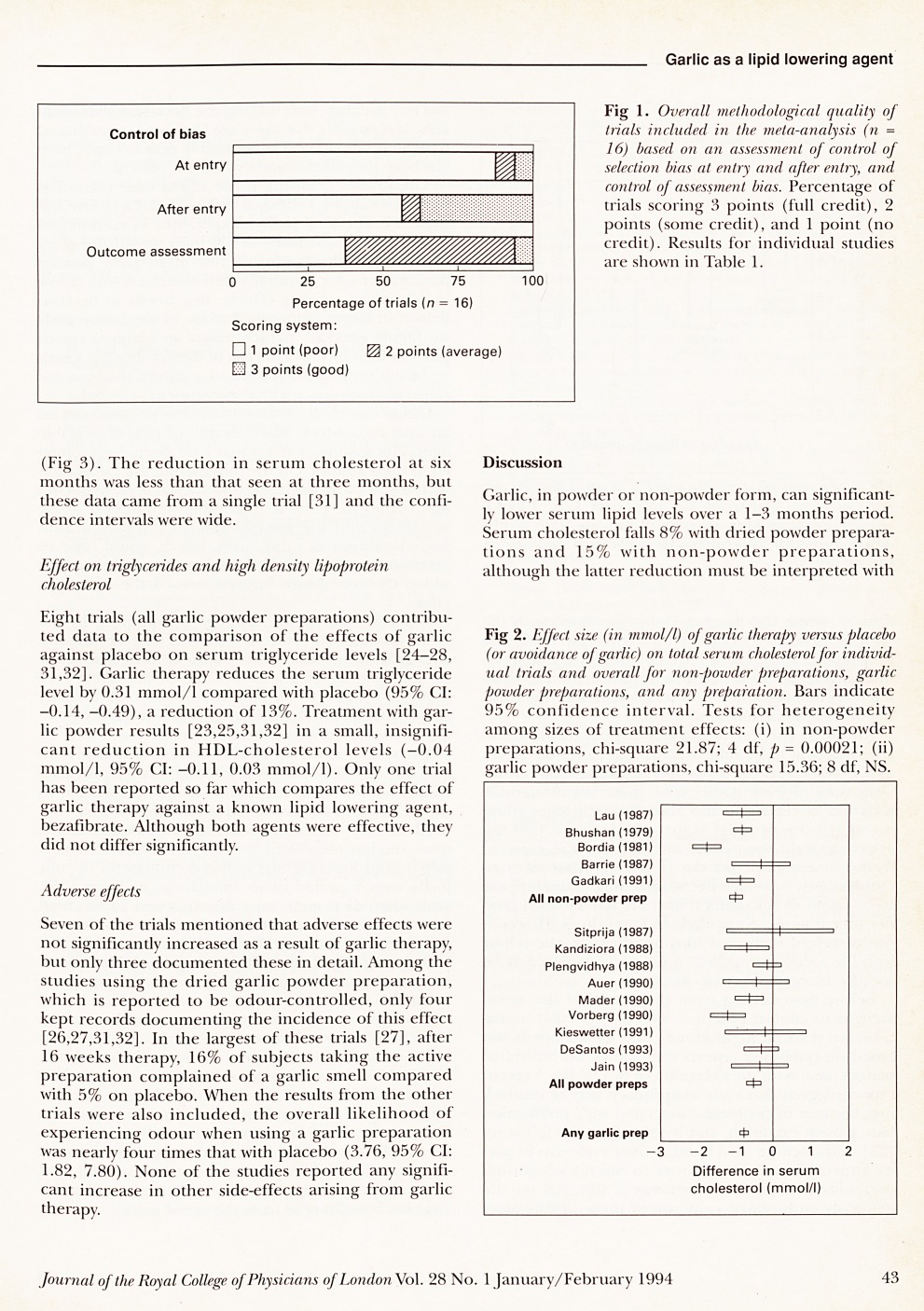
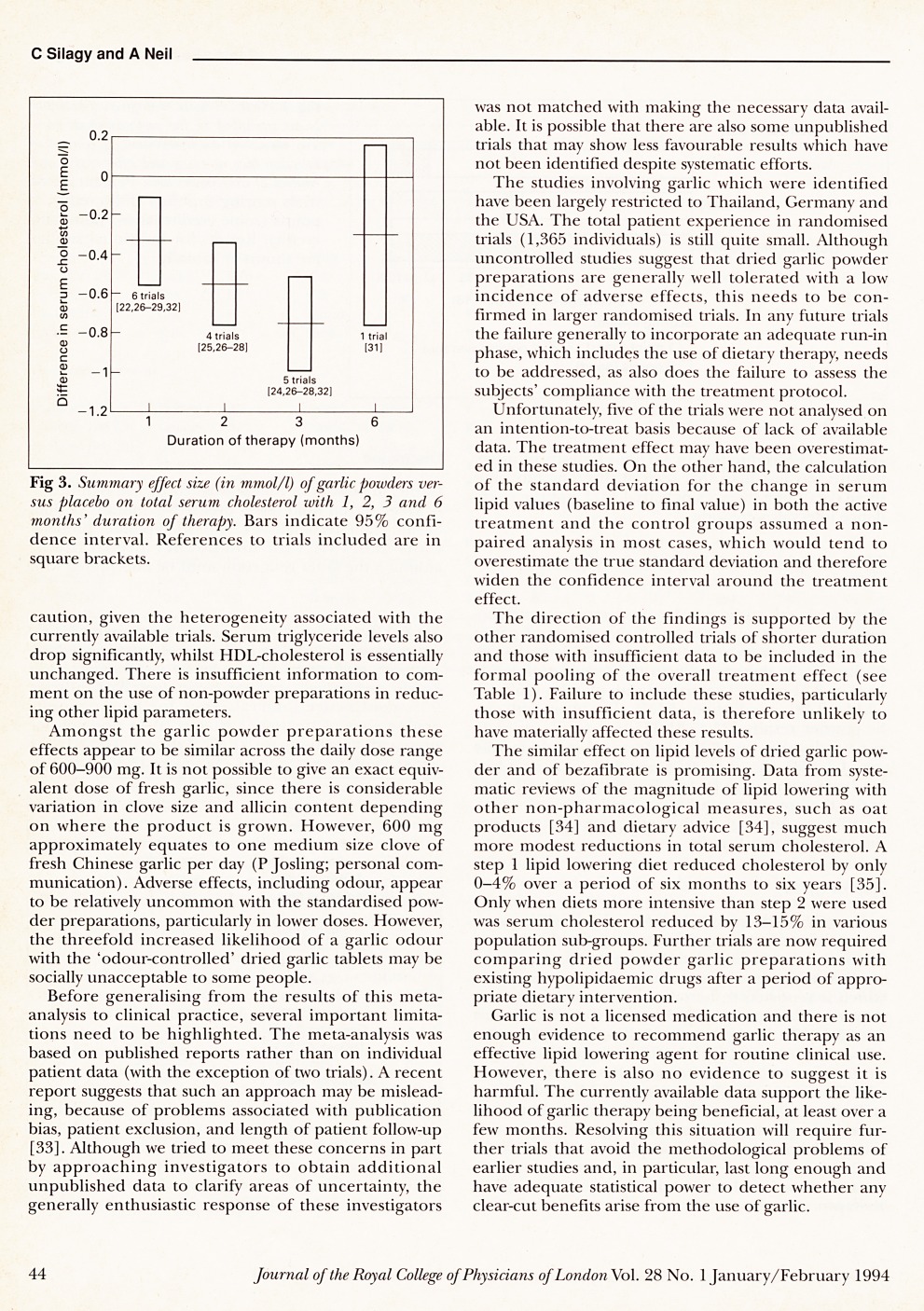
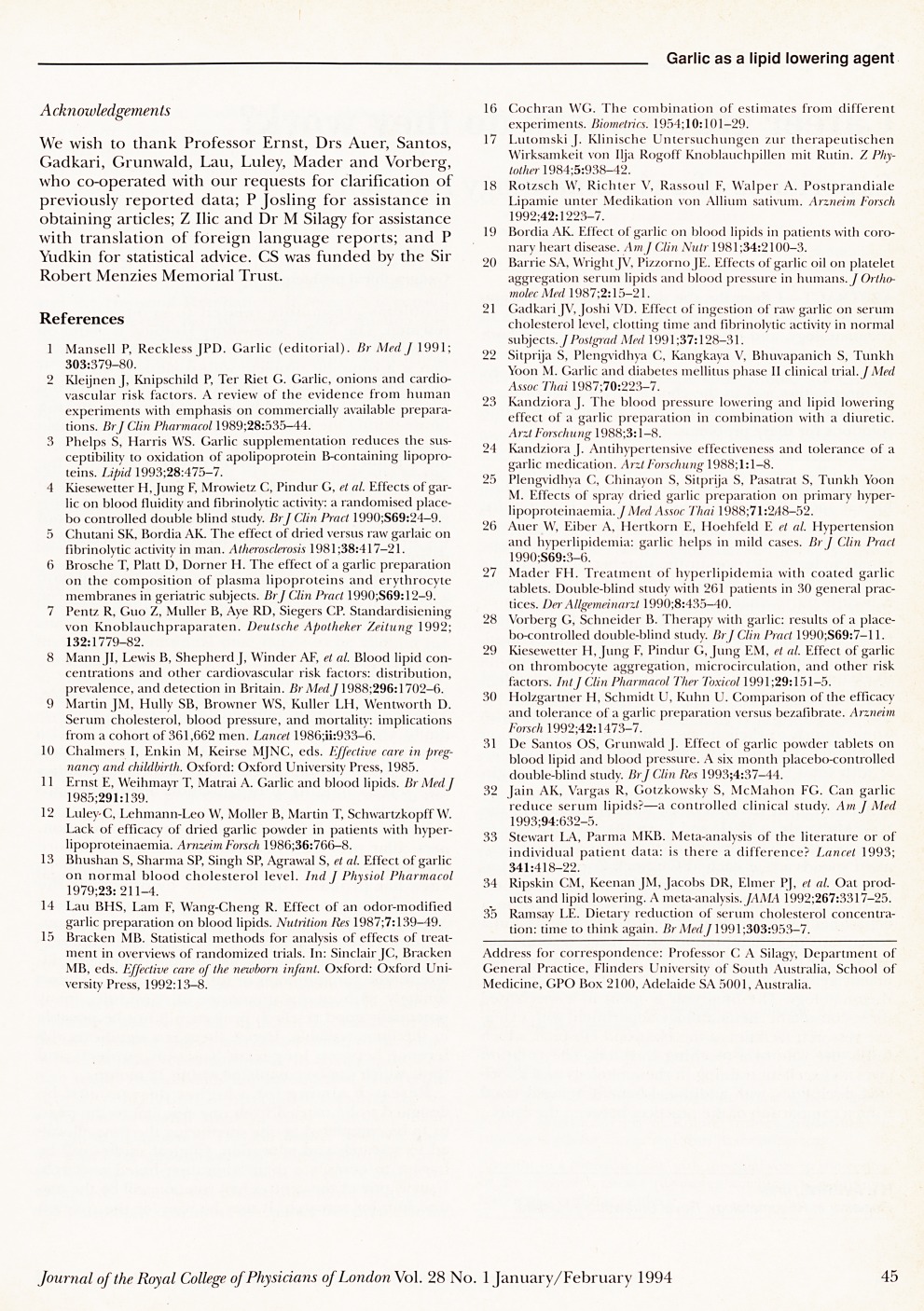
Contributor Information
Christopher Silagy, Senior Visiting Fellow, Department of Public Health and Primary Care, University of Oxford.
Andrew Neil, University Lecturer and Honorary Consultant Physician, Department of Public Health and Primary Care, University of Oxford.





